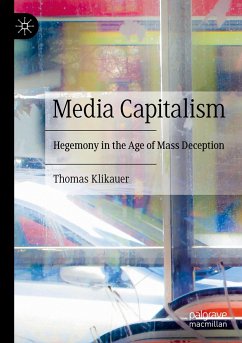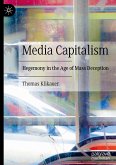This book argues that media and capitalism no longer exist as separated entities, and posits three reasons why one can no longer exist without the other. Firstly, mass media have become indispensable to capitalism due to the media's ability to sell the commodities of mass consumerism. Media capitalism also creates pro-capital attitudes among a target population and establishes an ideological hegemony. Thirdly, media capitalism provides mass deception to hide the pathologies of capitalism, which include mass poverty, rising inequalities, and the acceleration of global warming. To illuminate this, the book's historical chapter traces the emergence of media capitalism. Its subsequent chapters show how media capitalism has infiltrated the public sphere, society, schools, universities, the world of work and finally, democracy. The book concludes by outlining how societies can transition from media capitalism to a post-media- capitalist society.
"The book is an important contribution to the debate on the role of the media within capitalist societies. ... it is quite well written, in accessible language. I recommend it to anyone seeking a better understanding of the issues at stake in the 21st century. Trade unionists in particular will find a lot of information and arguments to help them in their daily efforts to improve workers' quality of life and working life." (György Széll, Transfer, Vol. 28 (3), 2022)








